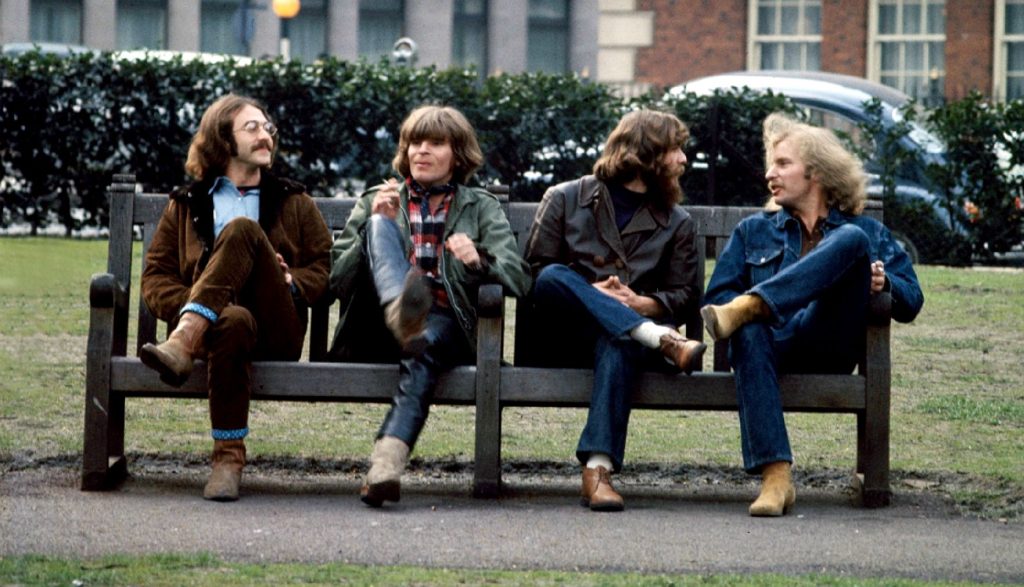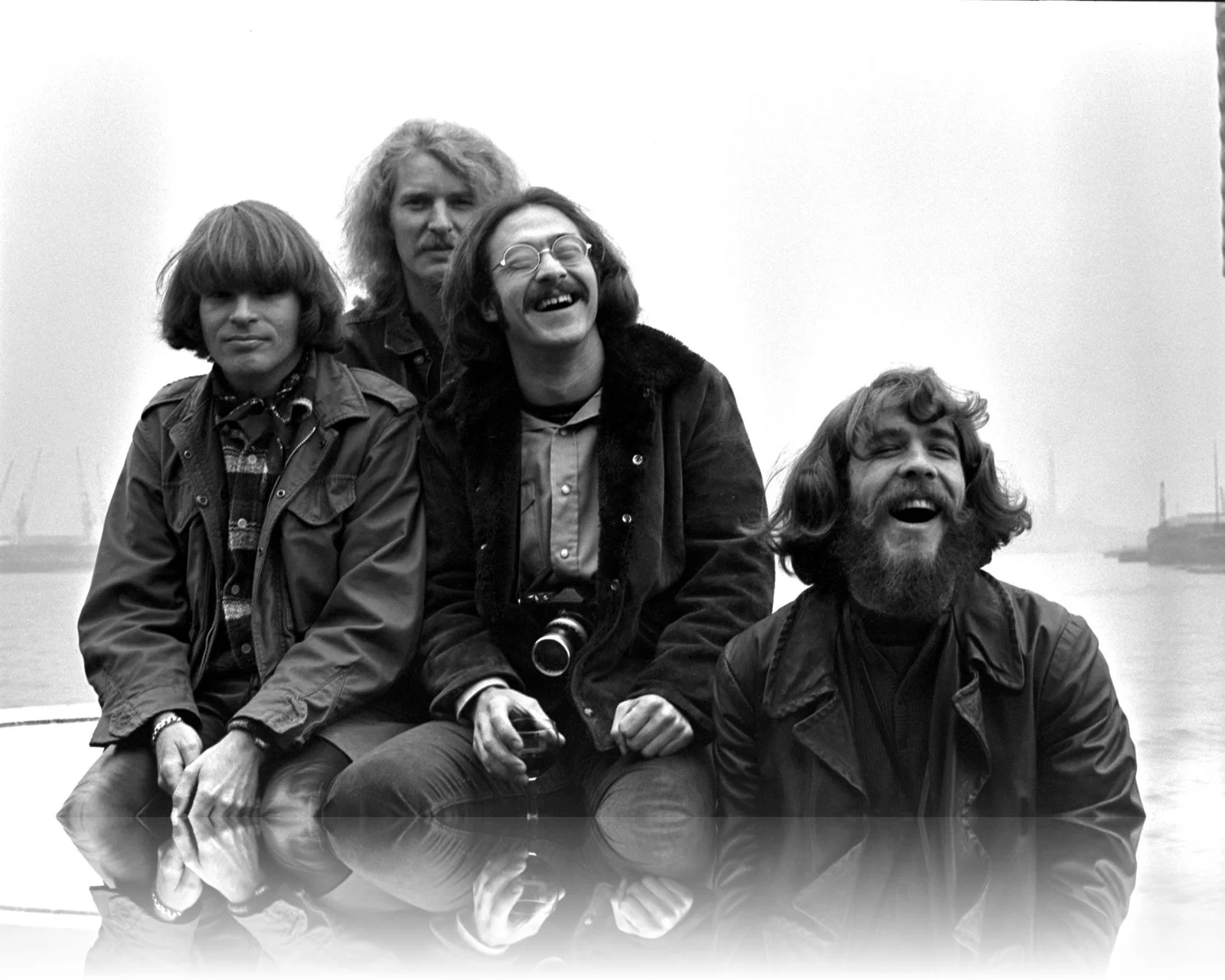
The Dual Legacy of Creedence Clearwater Revival: A Journey Through “Down On The Corner” and “Fortunate Son”
In the tapestry of American music, few bands have woven stories as timeless and resonant as Creedence Clearwater Revival. Their songs echo the ethos of an era marked by change, hope, and defiance. Among their illustrious catalog, “Down On The Corner” and “Fortunate Son” stand out as quintessential narratives that capture the spirit and struggles of the late 1960s.
Released in 1969 as part of the album Willy and the Poor Boys, these tracks marked a pivotal moment in CCR’s career. “Down On The Corner,” with its infectious rhythm and playful storytelling, reached number 3 on the Billboard Hot 100. It paints a vivid picture of street musicians playing to lift the spirits of everyday people. In contrast, “Fortunate Son,” a fervent protest anthem, climbed to number 14 on the same chart, becoming an enduring symbol of anti-establishment sentiment.
The dual release of these songs was more than just a musical endeavor; it was a cultural statement. John Fogerty, the band’s lead vocalist and primary songwriter, crafted these pieces with a keen awareness of the socio-political landscape. “Fortunate Son” emerged during a time when America was embroiled in the Vietnam War, serving as a poignant critique of class disparity and patriotic hypocrisy. Its raw energy and biting lyrics resonate with those who lived through that tumultuous period, evoking memories of protests and rallies that shaped a generation’s consciousness.
On the other hand, “Down On The Corner” celebrates the simple joys and communal bonds forged through music. It tells the story of Willy and the Poor Boys, a fictional band bringing joy to passersby with nothing more than their instruments and a bit of rhythm. This song’s upbeat tempo and catchy melody offer a stark contrast to “Fortunate Son,” yet both share an underlying message about accessibility and authenticity in music.
Listening to these tracks today is akin to flipping through an old photo album filled with snapshots from a bygone era. For those who lived through the 60s, they are reminders of youthful rebellion, dreams for equality, and nights spent gathered around radios or record players. For younger generations, they offer insight into a world vastly different yet strikingly similar in its challenges and aspirations.
The magic of Creedence Clearwater Revival lies not just in their ability to craft memorable tunes but in their power to transcend time. Their music continues to speak to universal themes—joy amidst adversity, defiance against injustice—that remain relevant across decades. As you listen to “Down On The Corner” or “Fortunate Son,” you’re not just hearing notes and lyrics; you’re connecting with a legacy that has inspired countless artists and listeners alike.
In reflecting upon these iconic songs, we are reminded of music’s profound ability to capture moments in time while also transcending them—bridging past and present in an ever-evolving dialogue. For Creedence Clearwater Revival, this meant creating art that was as much about entertainment as it was about enlightenment—a balance they struck with unparalleled grace and enduring impact.
